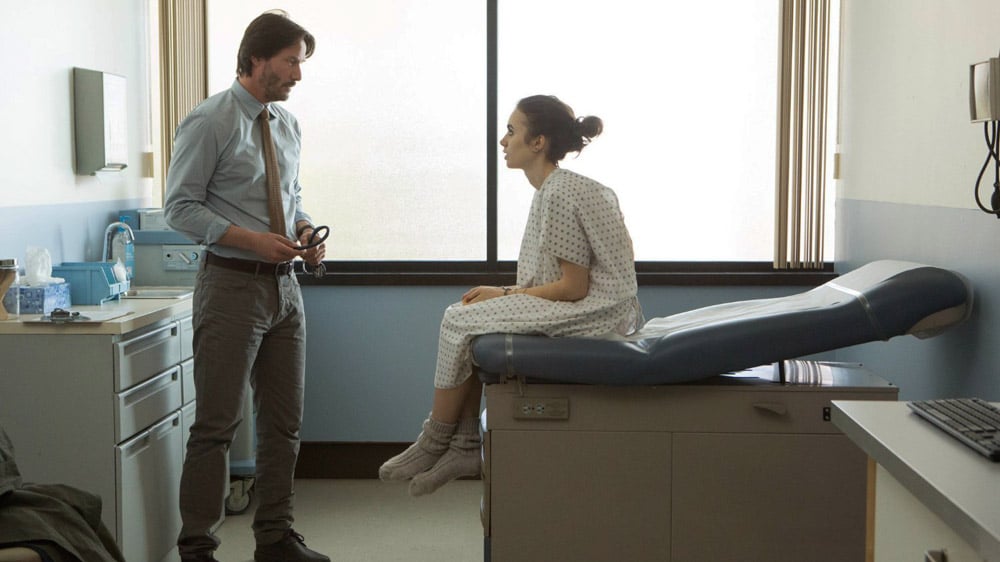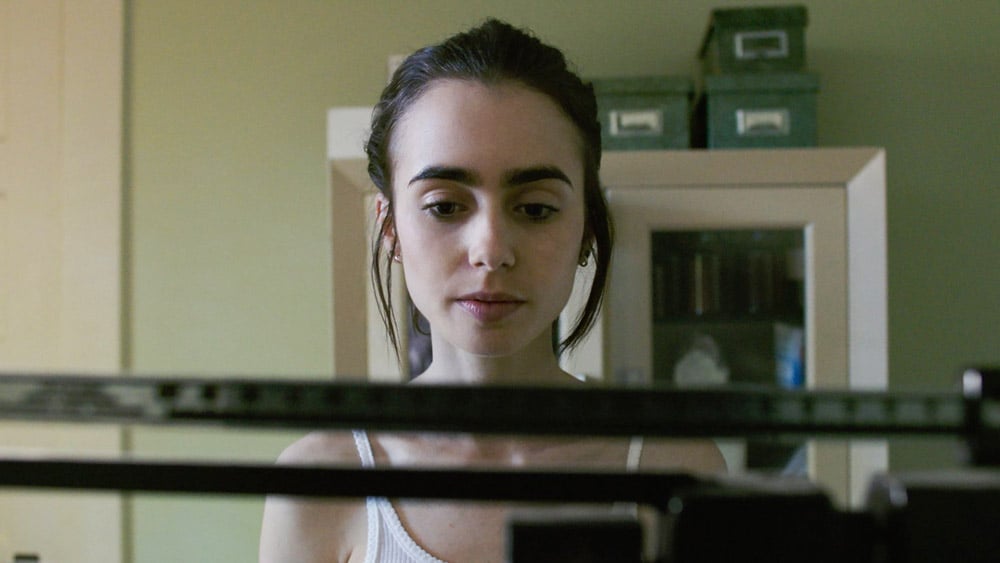Content Warning: this To the Bone feature article contains references to eating disorders, eating-disordered behaviours, and weight.
Mentally ill individuals are regularly placed in situations in which our illnesses may flare up. These situations may ‘trigger’ us, regardless of how special-snowflake that may make us seem. That’s just the nature of psychological illnesses. When someone is faced with media directly relating to a mental illness they struggle with, featuring potentially triggering material, should that someone step far away, or should they tackle the content head-on, in an effort to perhaps attempt to understand themselves from the perspective of someone else?
Such questions have been raised in the wake of To The Bone, a film released recently on Netflix. Its plot charts Ellen’s (Lily Collins) experience receiving treatment for anorexia (not for the first time) in an inpatient facility. There have been countless articles both criticising and praising To The Bone for including Ellen and her fellow patients both engaging in, and discussing, eating-disordered behaviours, weight, and appearance. All subject matters that can be as distressing to an eating-disordered individual as they are enticing, because let’s face it, people who are obsessed with controlling their calories, exercise, meals or weight may often look for any excuse to discuss them at length (not in every situation, of course). Some people prefer to keep any discussion of their disorder tucked away within the recesses of their minds. But my point is, watching individuals on a screen enacting the very behaviours many of us have spent months or years engaging in, can be quite harmful.
To people who don’t know much about eating disorders, To The Bone might be eye-opening. It might do well in highlighting the fact that this is not a disease based on vanity and looking hot. Rather, it’s a disease that feeds on anxiety and trauma, that encourages rigid control, drill sergeant-like submission, and isolation – at whatever cost to one’s physical and mental health. We see all of this in Ellen, basically throughout the entire film. But is this a bad thing, for the eating-disordered among us?
From my perspective, as somebody who is in recovery from anorexia and bulimia nearly 15 years after the illness first bound me up in its claws, watching To The Bone can be both a bad thing, and a good thing, and I can’t ever begin to speak for every eating-disordered individual in the world. There are humans suffering from a myriad of eating disorders living in numerous locations, following countless religions (or not following any), and possessing varying cultural and personal characteristics.

People will be affected in different ways. But I honestly feel that if you’re still deep into your disorder, or even if you’re not especially far into recovery, being faced with a narrative that is solely about a young woman’s struggle with anorexia will be harmful. Try to be honest with yourself. Do you think that seeing an extremely thin girl exercising in secret, talking about her illness to other patients, being weighed, and avoiding food would be a bad thing for you to witness? Then step away and save it for another time. To The Bone will always be available for you to watch, and who knows, you might be able to enjoy the film more when you’re not worried about being triggered. If you’ve already watched it, or you’re going to anyway, then that’s fine too. Watch it with a loved one, and don’t be afraid to press pause if you’re feeling overwhelmed or if you want to discuss something. Sometimes you can’t help but take something in, even if you know that it might harm you. As I hinted at above, the very fact that it might harm you might make it all the more irresistible. But minimising harm is probably the best thing that you can do for yourself.
Personally, I am probably in the best position within my recovery that I’ve ever been in. Watching To The Bone wasn’t particularly harmful for me, probably because I am relatively healthy both physically and mentally. There were moments that hit home, but instead of being triggered, I felt a strange sense of detachment from what I was witnessing. For me, that almost makes me want to celebrate how far I’ve come within my recovery, and let other people know that it is indeed possible to watch particularly sensitive and familiar content, and be able to place oneself out of its context, or at least partly.
To The Bone isn’t a bad film. It’s somewhat realistic, it has a great soundtrack, and most of the acting is well done. But it is a film which portrays the struggle of a female suffering from anorexia nervosa, who was then able to afford what seemed to be fairly expensive inpatient treatment. The one person of colour also being treated, Kendra (Lindsay McDowell), suffers from binge eating disorder, and she and her friend Tracey (Ciara Quinn Bravo), who is bulimic, are relegated to the sidelines.
There are not enough stories being written, or at least afforded mainstream attention, about disorders that don’t necessarily inhabit the bodies of ultra-thin women. There is a male within the treatment facility, Luke (Alex Sharp), who is recovering from anorexia nervosa, but his recovery was pushed aside in place of his role as love interest to Ellen. Including a male within the narrative was a start, as there is a great deal of stigma centred towards men who have eating disorders, but overall, To The Bone was essentially just another story we’ve seen before, just better. Let’s work on representing other eating disorders with the same level of enthusiasm.
If you or someone you love is suffering from an eating disorder, please contact the Butterfly Foundation’s national helpline at 1800 33 4673.




COMMENTS